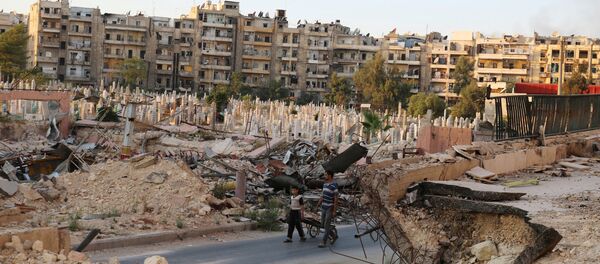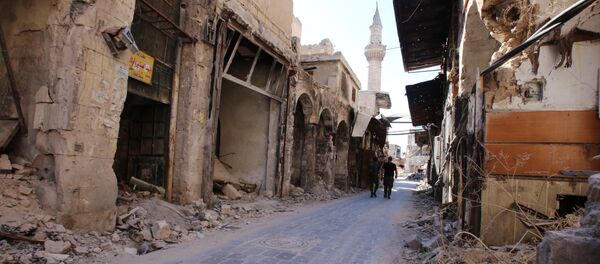Washington needs to return to the "interest-based diplomacy that characterized US foreign policy during the Cold War," Enea Gjoza, a fellow at Defense Priorities and Master in Public Policy candidate at the Harvard Kennedy School of Government, believes.
"Despite vast and prolonged military commitments in Iraq and Afghanistan, we are further from victory today than we were in the early years of those conflicts. Similarly, a massive aerial and drone campaign against terrorists in places like Yemen, Pakistan, and Iraq has not prevented the spread of either Al Qaeda or ISIS [Daesh]," Gjoza writes in his article for The National Interest.
"It is only in the post-9/11 world that the US has treated military power as the preferred and often only tool of statecraft, a policy which has been an abject failure," he underscores.
Commenting on the disruption of the US-Russian September deal on Syria, Gjoza draws parallels between Syrian ceasefire accords brokered by Washington and Moscow and the Iranian nuclear agreement.
By striking the deal with Tehran Washington showed that it is able to put its pragmatic geopolitical interests before "ideology." In contrast, "US efforts that have prioritized ideology over core interests have mostly yielded disastrous results," the US academic stresses.
Gjoza points out that Washington's approach has prompted both the Syrian opposition and the Assad government to further escalate tensions in the region.
The academic recalls that, similarly, back in 2011 the US-led coalition's decision to go beyond its UN mandate in Libya led to disastrous consequences.
"While hawks argue that diplomacy is also bound to fail, as they did repeatedly during the Iran negotiations, diplomacy, properly applied, can achieve much," the US academic argues.
"Particularly in dealing with other nuclear powers, coming to terms through diplomacy is the only way to safeguard our [the US'] interests while preserving peace," Gjoza adds, in a clear reference to Russia.
For its part, Moscow is making efforts to solve the crisis through diplomatic means: on Tuesday Russian Aerospace Forces and the Syrian air force halted strikes over Aleppo for eight hours.
On Monday, Lt. Gen. Sergei Rudskoy, chief of the Russian General Staff's Main Operational Directorate said in an official statement that the humanitarian pause would be implemented for eight hours on Thursday in order to allow militants and civilians to leave Aleppo.
The move has received praise from EU foreign policy chief Federica Mogherini, who dubbed it "a positive step."
At the same time, the deployment of Russia's S-300 and S-400 air defense systems in Syria has closed a "window of opportunity" for a potential US military intervention and so far prevented further escalation of tensions.
Karen DeYoung of the Washington Post admits that the US administration was considering using "American air power to ground Assad's air force" among other options, following the collapse of the Syrian ceasefire agreement.
"Now, with the installation of a comprehensive, potent Russian air defense system, many military officials see it as risking a great power game of chicken, and possible war," DeYoung underscores citing senior administration officials.
Russian officials believe that the humanitarian pause could be used to separate terrorists from moderate rebels on the ground in Syria and pave the way for a peaceful resolution.
"It is a goodwill gesture in the hope that the declared pause will be used to finally separate from Jabhat al-Nusra [al-Nusra Front] and like-minded groups from those armed groups that are supported, equipped and armed by the United States, a number of European and regional countries," Russian Foreign Minister Sergei Lavrov said a press briefing on Tuesday.




